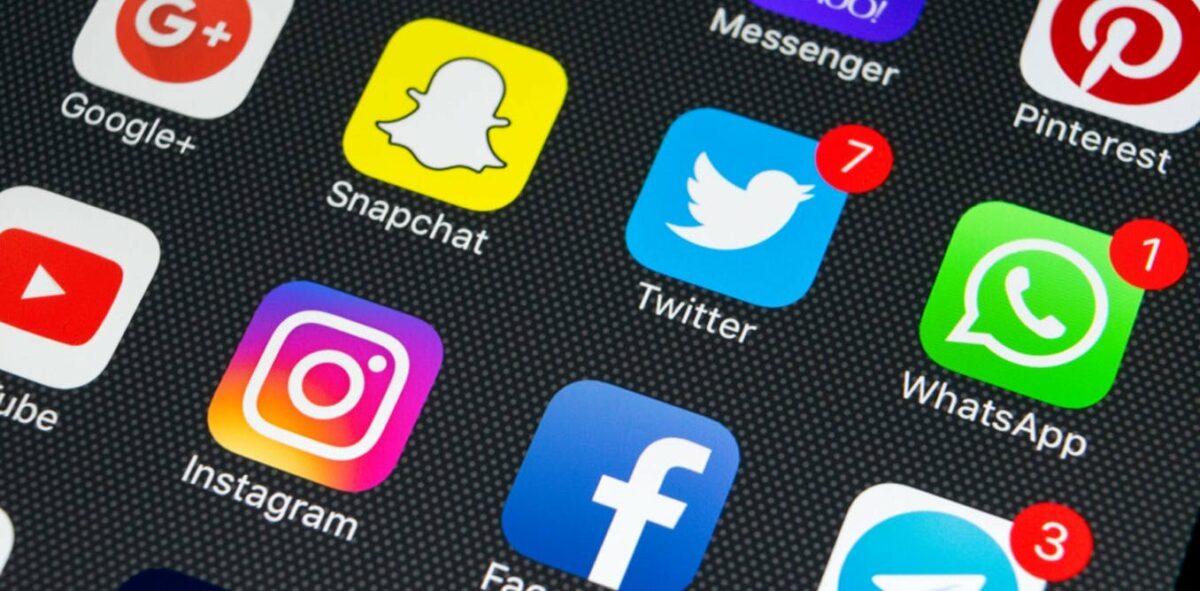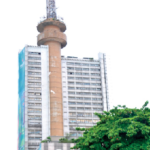Any analysis of social media’s effect on the EndSARS protests in particular and national security in general must be based on two premises. Firstly, that freedom of speech is guaranteed under the Constitution of the Federal Republic of Nigeria, and secondly that “freedom of speech” is the freedom to express opinions, not freedom to intentionally incite trouble.
Even though fake news and inciting social media posts are a threat to law and order, social media itself cannot be blamed. It should be likened to a firearm. Guns are never convicted of murder it’s those who pull the trigger that are guilty! So it is with social media. It isn’t the fault of social media that people use it to make mischief. Government has been trying to blame the “opposition” for hijacking the social media, but the truth is that nothing has been “hijacked”.
Anti-government social media posts clearly show the citizens home and abroad in despair over the failure of governance. Nigerians, not only youths, are tired of fake and empty promises and tired of representatives who have far more interest in their personal welfare than public welfare. Since 1999, successive governments have failed to address these problems and the present administration is burdened with increasing voices being raised in protest.
There is no doubt that Nigerians deserve a better deal from governance and they are not mincing words about it on the social media. The earlier government successfully addresses this despair and brings about their much-touted change, the better for the nation. The minister of information revealed how far behind the times government is when he criticised today’s youth for not watching television or reading newspapers, but rather preferring social media.
Perhaps he doesn’t know that worldwide it has been so since the millennium. This is why those under 30 years of age are referred to as “millennials”. The minister somehow believes that the country’s security is threatened by the social media, but not by poor governance. Government must wake up to today’s reality and design appropriate modern information dissemination policies which recognize that the internet has replaced TV and newspapers as main sources of information.
The National Orientation Agency, which is under the Ministry of Information, is noticeably absent on social media, preferring instead to use the outdated Nigerian Television Authority (NTA) which most Nigerians, let alone youths, don’t watch due to its unappealing content and outdated format. The minister rightly complained that the social media is being quoted as a “Bible”, but didn’t address the issue of why Nigerians prefer to believe what they read on the social media to whatever they are being told by government spokespersons.
Cynics claim that there is as much fake news on the social media, as there is emanating from government sources. These days it’s far more likely that Nigerians will get the truth from the social media than from government sources. A prime example is the recent Lekki Toll Gate protests in which government changed position from an initial “the military were not there” to “they were invited”, and from “they didn’t shoot anybody” to “they used rubber bullets!”. The truth about casualties was hidden by government and only revealed by the social media, even though the extent may have been exaggerated.
Nobel Laureate Wole Soyinka has joined government in describing the social media as “lethal”. He was referring to one of its downsides which is that fake profiles of him have been created in order to attribute to him things which he never said. The intention is to start a quarrel or enforce a prejudice. Soyinka identified himself as a dinosaur by saying he doesn’t “do internet”.
Maybe he is unaware that social media and the Internet are integral parts of modern life, which are here to stay. Furthermore his books are published and advertised on the internet he hates so much! The truth is that majority of people on social media are not there to cause trouble. Most people don’t share their thoughts because they think it will change people’s minds, but simply to show those who think like them that they aren’t alone in their views.
In recent times top government officials have claimed that they have no idea what the youths still want since the Federal Special Anti-Robbery Squad (FSARS) has been scrapped.
Perhaps if they spent more time on the social media trying to appreciate the level of despair and disaffection rather than seeing every criticism as the work so called “political enemies” they would know what the youth want. Along with most Nigerians, the youths want an end to: the huge salaries of National Assembly members; lack of electricity; food supply fraud in the prisons service; election malpractice; fully mobilised yet unexecuted contracts; fraud in the oil and gas sector; inconsistent judgments by the judiciary; a poorly funded and ill-disciplined police force; ongoing massive corruption; poor care of soldiers fighting Boko Haram, disgraceful and outrageous treatment of police and armed forces widows and their families; unfair distribution of the nation’s wealth; inefficient and corrupt civil service; inadequate social facilities; poor infrastructure; poor government health services; favouritism in university admission, surreptitious government employment of “big men’s” children into top positions; gas flaring in the Niger Delta; marginalisation of the South-East; extra-judicial killings; and an end to the continued clinging to power or aspiration to rule by the “old guard” of “yesterday’s men” clearly past their prime and unfamiliar with digital society.
All said and done what they really want is an end to failure and poor governance. Those in authority appear only to take note of social media’s dark side without once mentioning its benefits. Social media isn’t forced upon anybody or given freely, people spend their money buying data.
The majority of Nigerians are law-abiding citizens who use social media to enrich their lives and maintain relationships with those living in far off lands while occasionally criticizing poor governance. The social media brouhaha shows that Nigeria still has an “analogue” government. Instead of threatening an impracticable and reactionary social media “shut down”, government should be proactive in closing down profiles of hate groups and informing citizens how to identify fake personal profiles and fake news.
Since those in government don’t use social media they will not be aware that the trending social media joke is that the USA sent soldiers to Nigeria to successfully rescue one American who had been kidnapped, yet Nigerian soldiers cannot find Leah Sharibu or over 100 Chibok girls. Instead of rescuing victims of kidnapping Nigerian soldiers have been sent to “rescue” kidnapped noodles and rice which were hoarded rather than given out as palliatives! …It’s better for people to laugh than to cry! All said and done the solution to the majority of criticisms on the social media lie in good proactive governance.

 Join Daily Trust WhatsApp Community For Quick Access To News and Happenings Around You.
Join Daily Trust WhatsApp Community For Quick Access To News and Happenings Around You.


